Just as the sun was rising
This week: Finishing off: Night Owls; Mandibles of Death; Walking the paths; Raising beds; Just as the sun was rising;
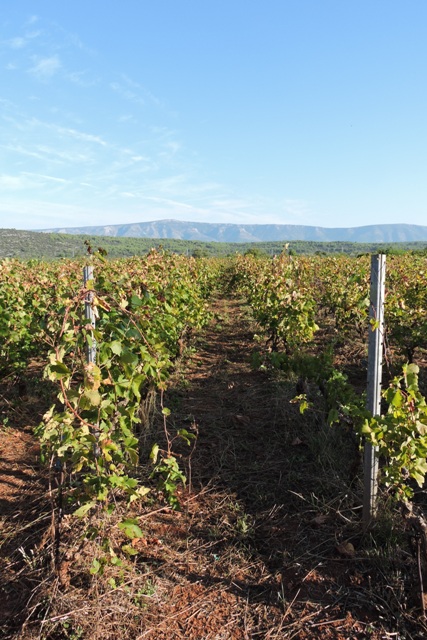
The much needed rain last weekend has come at a price. There were also some strong winds and after the sun started shining again, I discovered that I have some damage.
One of my trees is a Persimmon and this year it has had the largest crop since I planted it five years ago.
I was concerned by the amount of fruit which had set, but then in the summer the tree aborted about half of the formed fruit and I thought it would be OK.
When I looked this week, one of the branches has broken, but not completely.
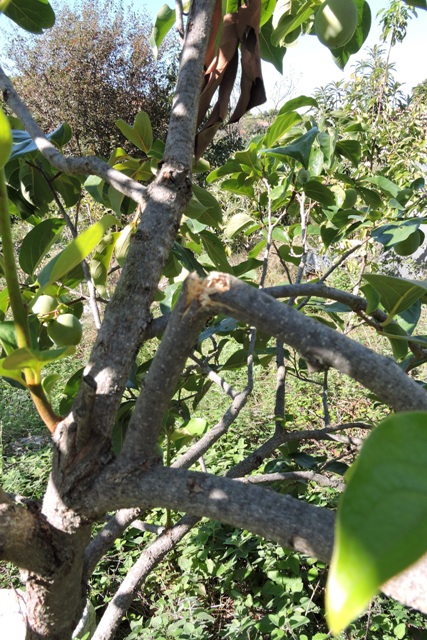
I think the fruit will still ripen, at least I hope so, then I will cut and seal the wound.
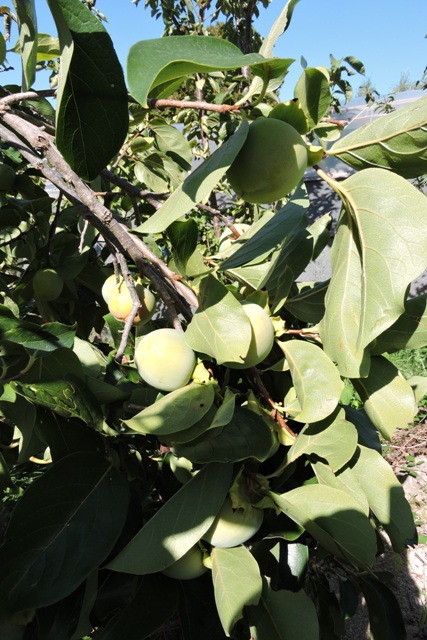
There are a number of new shoots all ready to take it’s place. I will have a good crop of fruit this year anyway, and they are just starting to ripen!
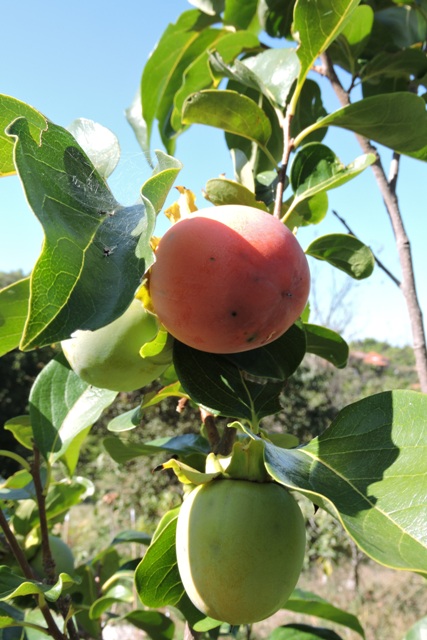
My car was due its annual government mechanical check this week, so I took it down to the test centre at Vrbanj.
It passed the test with an advisory for a broken rear light bulb in the multi bulb array. I got a new bulb on Friday, and a spare, and fixed it.
I also repainted the Park Assist guideline at the arrow entrance to my home.
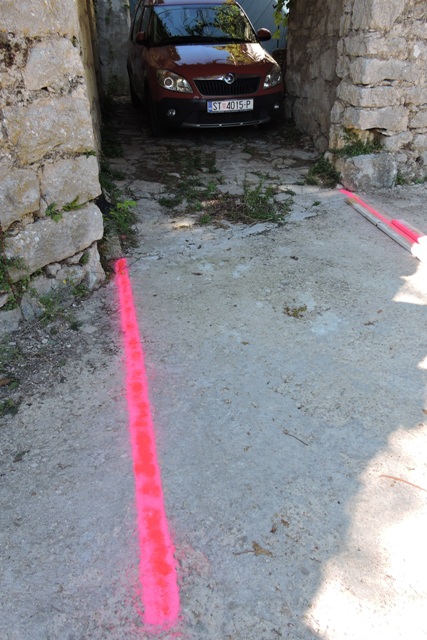
This is so the Park Assist button doesn’t inadvertently reverse me into the stonework!

The island of Hvar is a tourist hot spot. In high summer, every ferry arrival can bring 1,000 visitors, so there is little wonder the place feels full in July and August.
The island’s tourist boards have teamed up to make this new video about the island and it really hits the mark.
At some point though the island will simply not be able to accommodate any more tourists, and we are fast reaching that point.
Finishing off
After letting the varnish on the cabinet wall base for the kitchen, I fixed two aluminium runners to keep the woof off the floor tiles.
I fixed them with stainless steel SPAX screws.
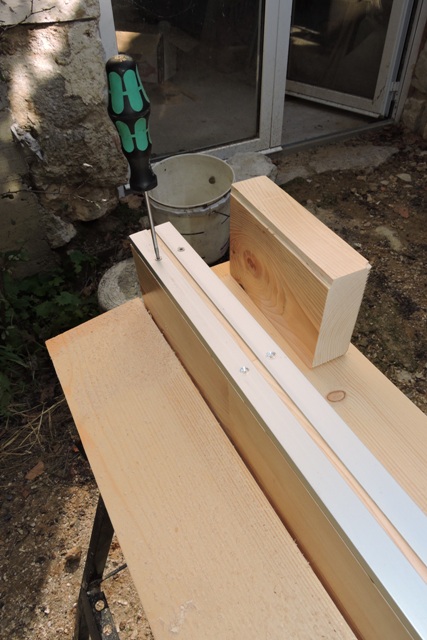
Next job was to fit the end wall panel to the base and the worktop. Because a heavy radiator will go on this end wall, I need a substantial base.
Next I used a belt sander to lightly run across the top of the worktop.
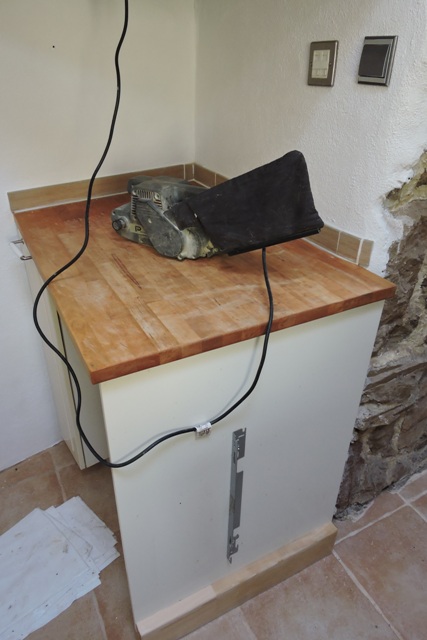
I then oiled the hardwood worktop and allowed the oil to soak in.
The final job was to slide the new refrigerator into place and turn it on. Doesn’t it look nice!
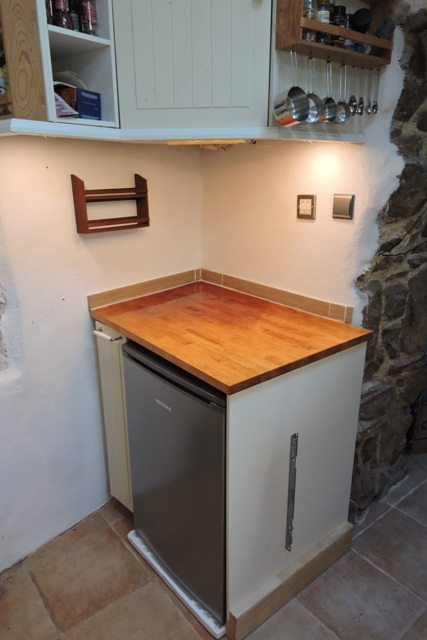
Night owls
The nights are less noisy in the autumn than the summer.
It’s not that there are noisy visitors in the summer, far from it, the visitors staying at the nearby appartments are seldom heard.
Rather it is the bush crickets which have stopped chirping.
Our night temperatures have averaged around 17ºC, although on Monday morning it dipped to 14ºC. So like most insects, the crickets have mated and are now getting ready to hibernate. At least those which do are.
Up to Tuesday we have had our Scops owl calling. This is not my local owl which has an extremely sore throat and hence has a very distinct, raspy call, but another.
It woke me shortly after midnight, so I used my parabolic microphone to record it.
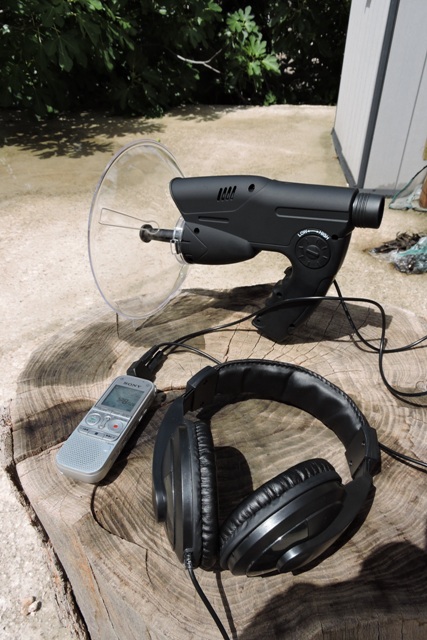
The recording is online at this Soundcloud link.
What I found with the parabolic reflector, was that I could track the bird as it was flying and calling.
I had thought that they would have called when perched in a branch somewhere. However this one was flying over a large range.
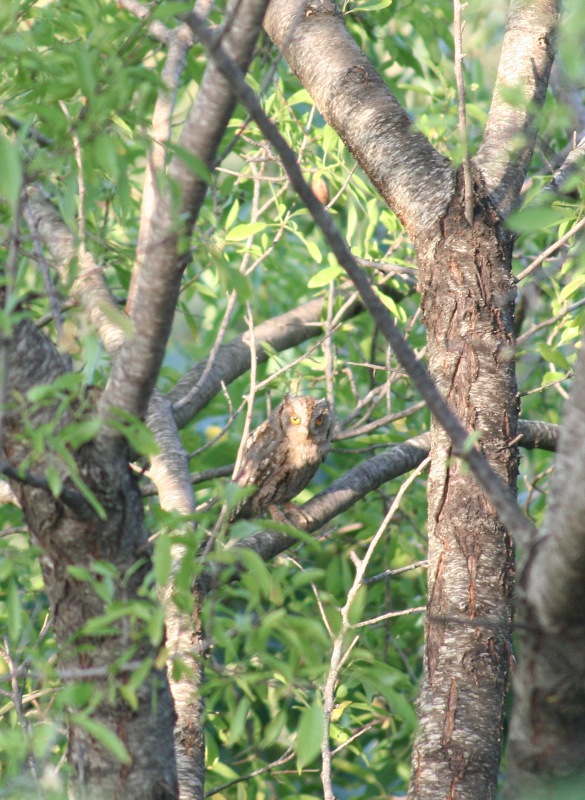
The Scops is a summer migrant and will soon be on its way south for the winter.
Last night my Little Owl was back, and once again it woke me. However this time when I got outside it had flown off.
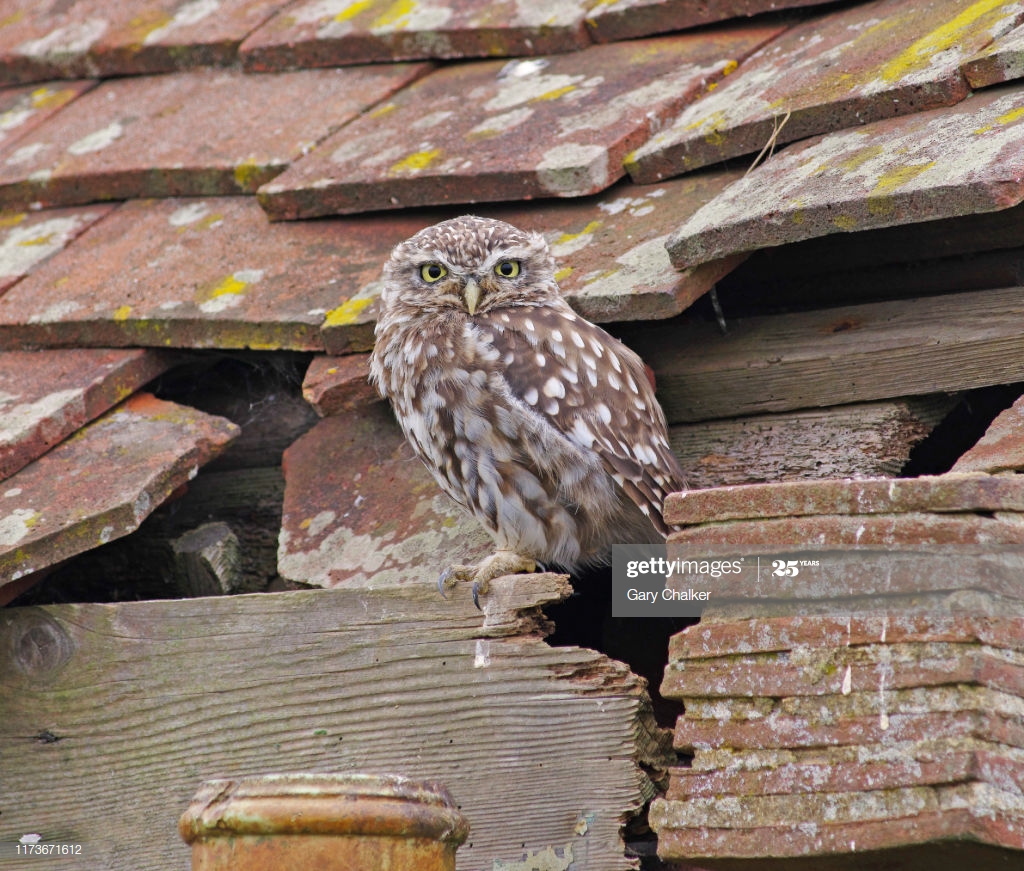
I need to try harder to record it next time…
Mandibles of death
We have had a very bad summer for mosquitoes this year.
I have been bitten frequently every day and have not ventured out without spraying all exposed skin with Dipterol.
I don’t like putting chemical repellent on my skin, so only apply it twice a day, but each application lasts no more than a couple of hours.
Natural repellents lit lavender and citrus just don’t work for me.
One thing which is different this year is the number of mosquitoes I have had inside the house, even with screens on all doors and windows.
Then I found the cause.
My senior cat Callie came in and jumped up on my desk as I was working. As I stroked her, three mosquitoes flew off in different directions.
Taking more notice of the felines, they have all been bringing the insects in, in their fur.
Whilst one or two species only feed on human blood, most mosquitoes will feed on any mammal.
My local vet told me that a cat’s skin make up is very different to human skin, in that they have significantly fewer pain receptors. That’s why they appear not to notice hypodermic needles at injection time. So they do not feel a “mozzy” biting them.
I have an electrocutor on my desk, and these are just of few of the mosquitoes I have caught this week. There have been four (now deceased) just this afternoon whilst writing the blog.
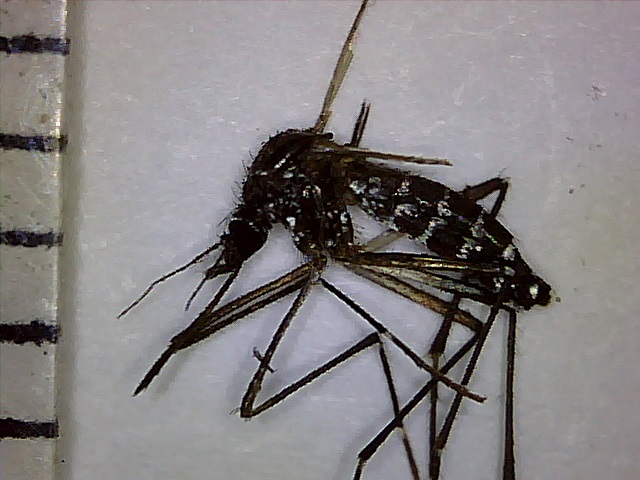
What is interesting is that our invasive species, the Asian Tiger Mosquito, is almost absent in my daily catch. In previous years it has been the only one biting.
I am using a USB microscope to photograph the insects. each division on the scale card is 1 mm, so magnification is around `150 times.
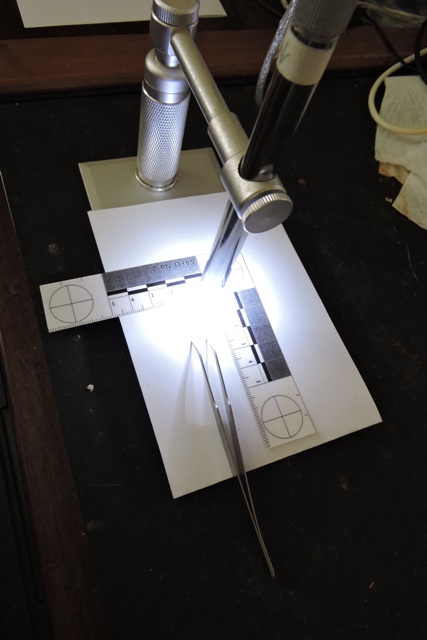
The largest mosquito we have here is the Asian Bush Mosquito with a body length of 10 mm.
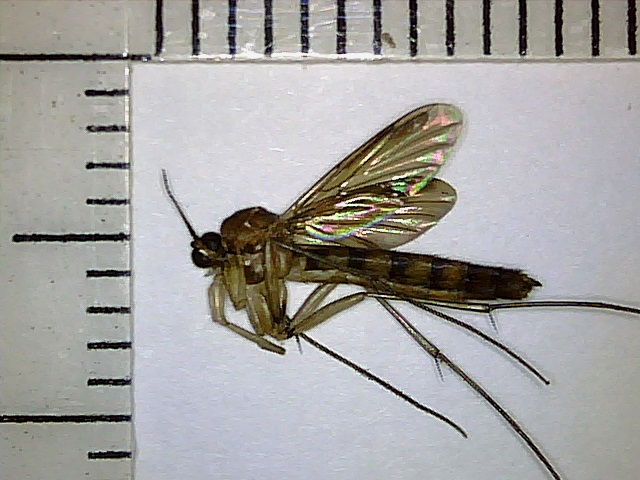
It is big and makes a lot of noise.
The smallest I have identifies is Anopheles claviger, which doesn’t have a common name. Even though it is a paleo-arctic species which can be found throughout Europe and North America. It is one of the vectors for Malaria.
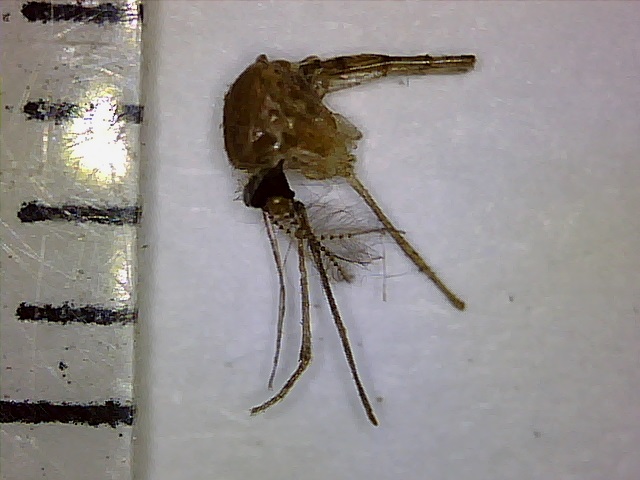
Most of the photographs do not show wings because they are burnt off by the electrocutor.
Another species is the Flood Water Mosquito. It can be identified by its long, ringed legs.
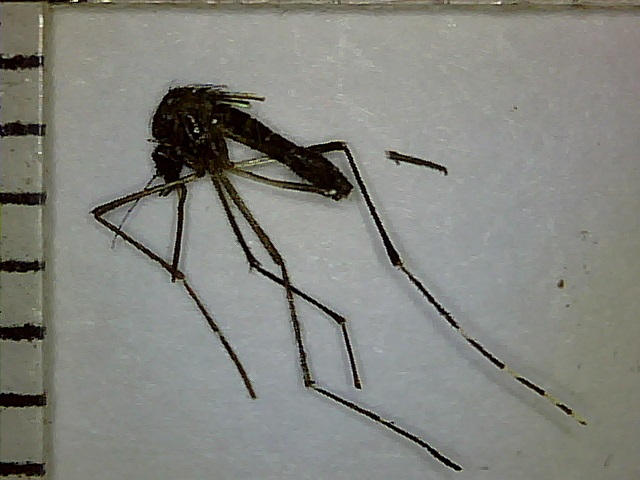
Increasing the magnification, you can see the exquisite detail of the wings of this Tiger Mosquito.
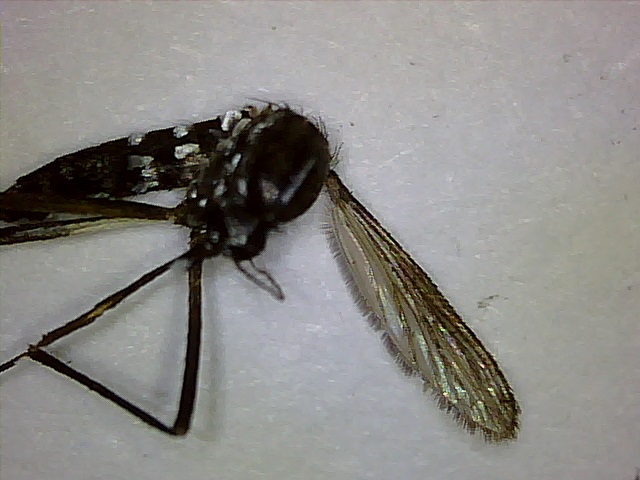
Make that six I have killed writing this blog!
The long “L” shaped tube in the photo is the spear the insect uses to pierce skin.
The mosquito’s mouth, also called a proboscis, isn’t just one spear. It’s a sophisticated system of six thin, needle like mouthparts that scientists call stylets.
Grouped together, each stylet pierces the skin at the same time, finds blood vessels and makes it easy for mosquitoes to suck blood.
The Universitat Autònoma de Barcelona has a downloadable catalogue (in English) of the main mosquito vectors found around the Mediterranean.
Walking the paths
With some beautiful, warm, autumn days this week, I have been walking most days along the local paths.
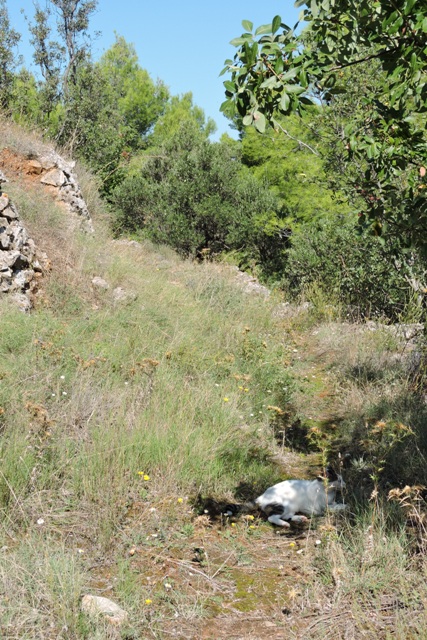
Sometimes accompanied by one of the felines, other times I have sneaked out on my own so I have been able to go further afield.
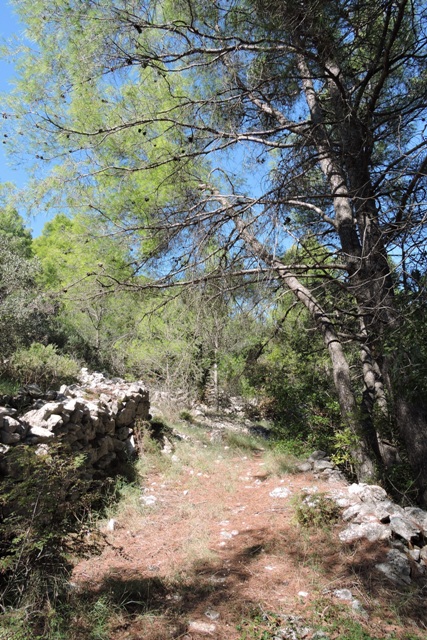
Throughout the year, I have recorded the wild flowers and plants which I see in different parts of the walk. However although the rain has made all the grasses very green, the only wild flowers this week were daises.
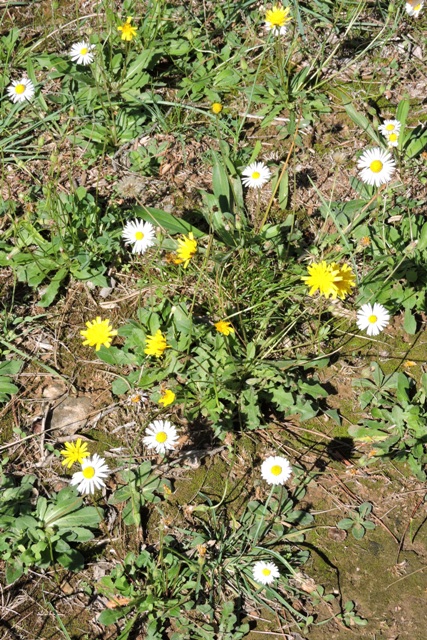
It really is a lovely time of year to walk along the green lanes. I never saw another soul and my only company was the occasional feline and the wildlife.
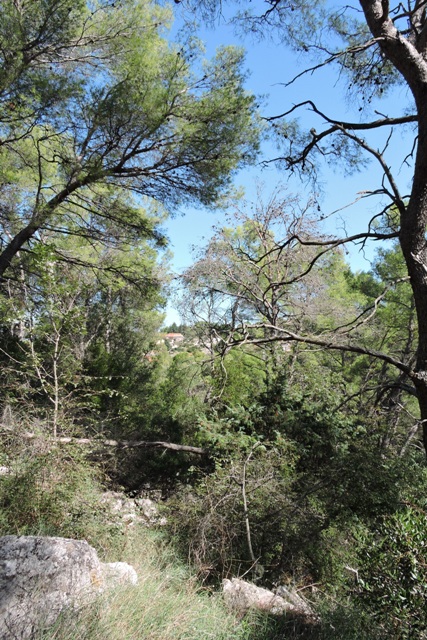
Raising beds
After finishing the kitchen corner this week, I decided that I should make a start in the Polytunnel on some improvements.
It is quickly becoming a jungle in there.

The bananas are taking over the place, as are the sweet potatoes, while on the ground the lemon grass is spreading along with the parsley.
I want to move my non invasive herbs into one dedicated bed. The invasives, principally Mint, will go in large pots where their ability to spread is curtailed.
I have the perfect corner, near the door where the herbs will go. However I want them in a raised bed.
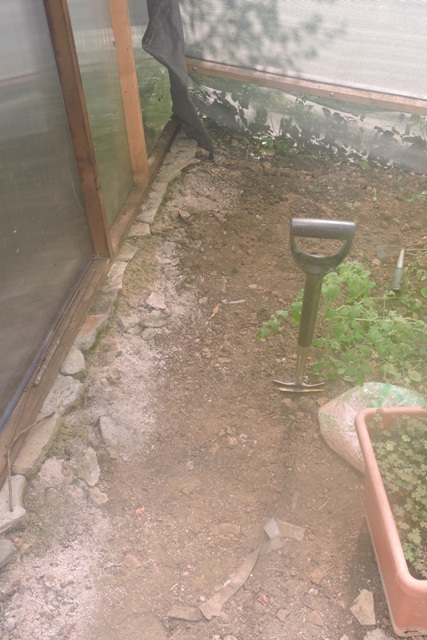
After measuring the space, I found some lengths of timber boards in my store which will be ideal for making the raised bed.
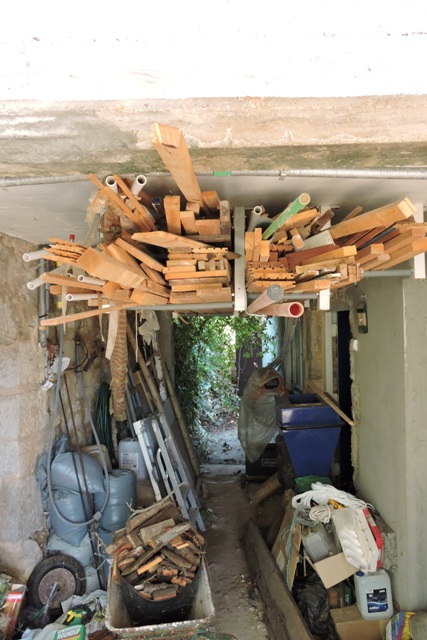
It is impossible to get treated timber here, so everything comes as rough timber, straight from the sawmill. You then have to treat it yourself.
Because this is going to be inside the Polytunnel and not subject to rain, I have decided not to treat it with waterproofing, but just with an insecticide.
To protect the wood from contact with the soil, I have used thick plastic sheeting, stapled down. Next week t will be assembly, filling and planting!
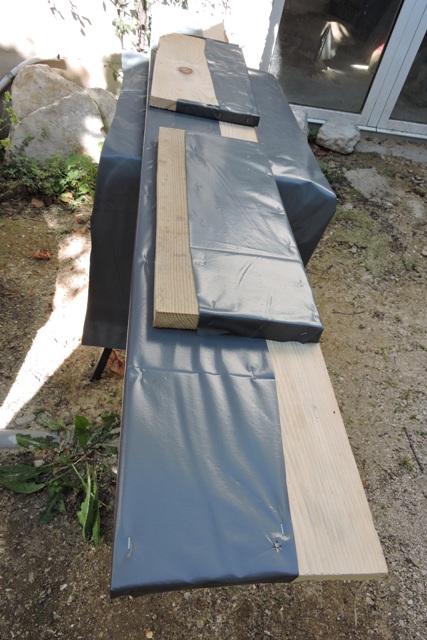
Early this morning, just as the sun was rising…

This is the harvest season and we had the Harvest Full Moon last night.
At the moment it is the grapes which are being picked. In a couple of weeks the olive harvest will start. Both of these are major crops on the island.
I was asked if I wanted to help my immediate neighbours picking their Plavać grapes, so was out early this morning.
It is lovely time of day to be out and about. The air is still cool and fresh and the moment the sun is above the horizon, you can feel its warmth on your skin.
The first job was to removed all the plastic crates from the van and move them to the end of the rows of grapes.
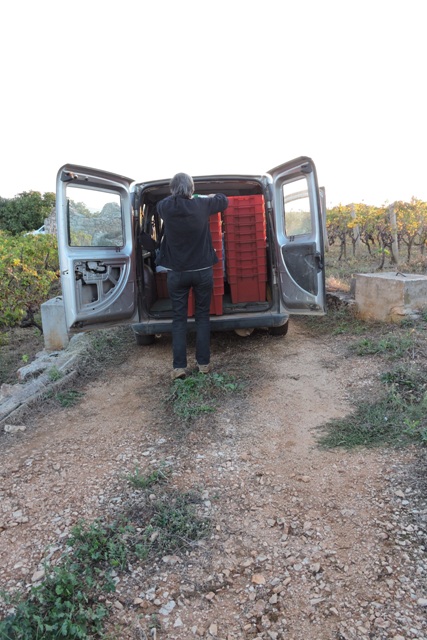
Each of the crates will hold 25 kg of grapes, when they are level with the top. This one probably has close to 30 kg.
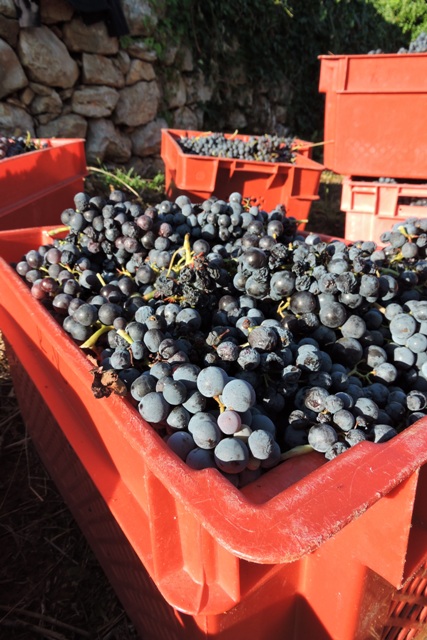
I dragged my crate to the end of a row and started cutting the bunches from the vines.
The crate is dragged back along the row, gradually being filled as it goes.
After a couple of hours, the team of seven pickers had finished harvesting all my neighbours vines in this plot. There are around 500 kg of grapes in all the crates, enough to make 300 litters of local wine.
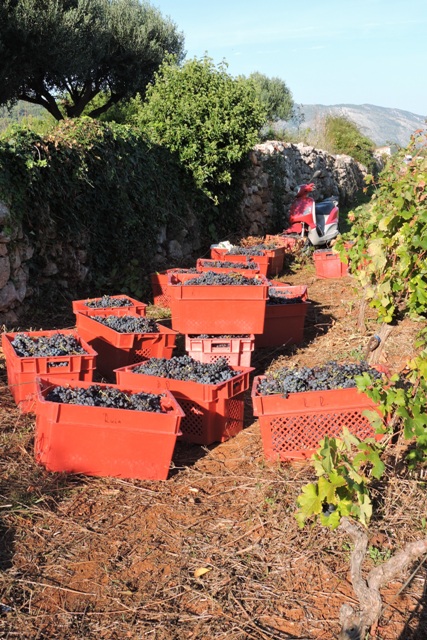
Then it was time for breakfast. NCG